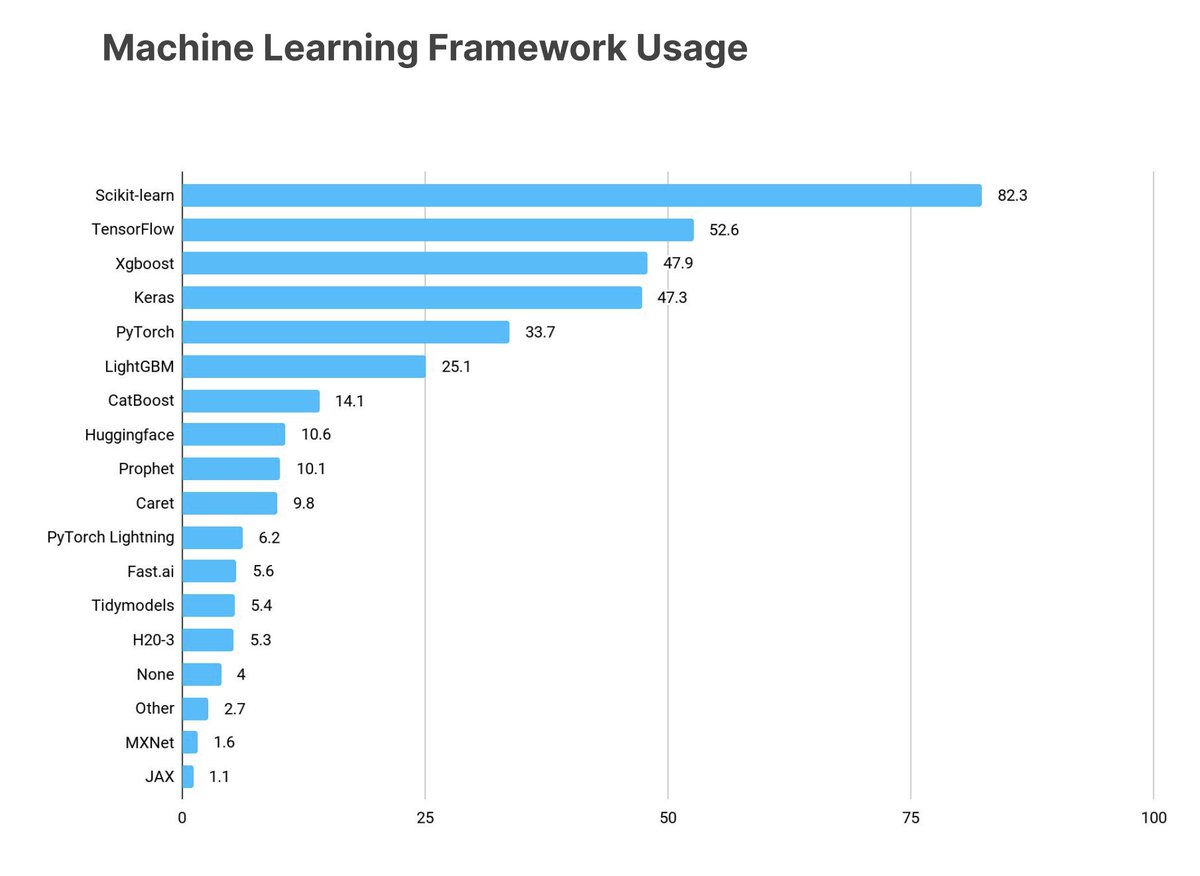
The results of the global survey of professional ML developers and data scientists (run by Kaggle) just dropped! Many interesting insights, including fresh data about ML framework adoption.
kaggle.com/kaggle-survey-…
kaggle.com/kaggle-survey-…

Perplexing that Keras dropped by 3 pts compared to last year while TensorFlow increased by 3 pts, since 99% of new TF usage leverages Keras. I think this illustrates the fact that the TF brand tends to override the Keras brand, i.e. many of our users answer "TF" but not "Keras".
A similar phenomenon was likely at work in the StackOverflow developer survey 2021, which showed a large adoption gap between TensorFlow and Keras -- which should not exist in 2021... 

Keras usage has meaningfully grown in 2021 in absolute numbers (e.g. docs traffic), though that doesn't say anything about market share (for which we have to look at other metrics, including these 2 surveys). TF/Keras share is unchanged compared to 2020 as far as I can tell
• • •
Missing some Tweet in this thread? You can try to
force a refresh



